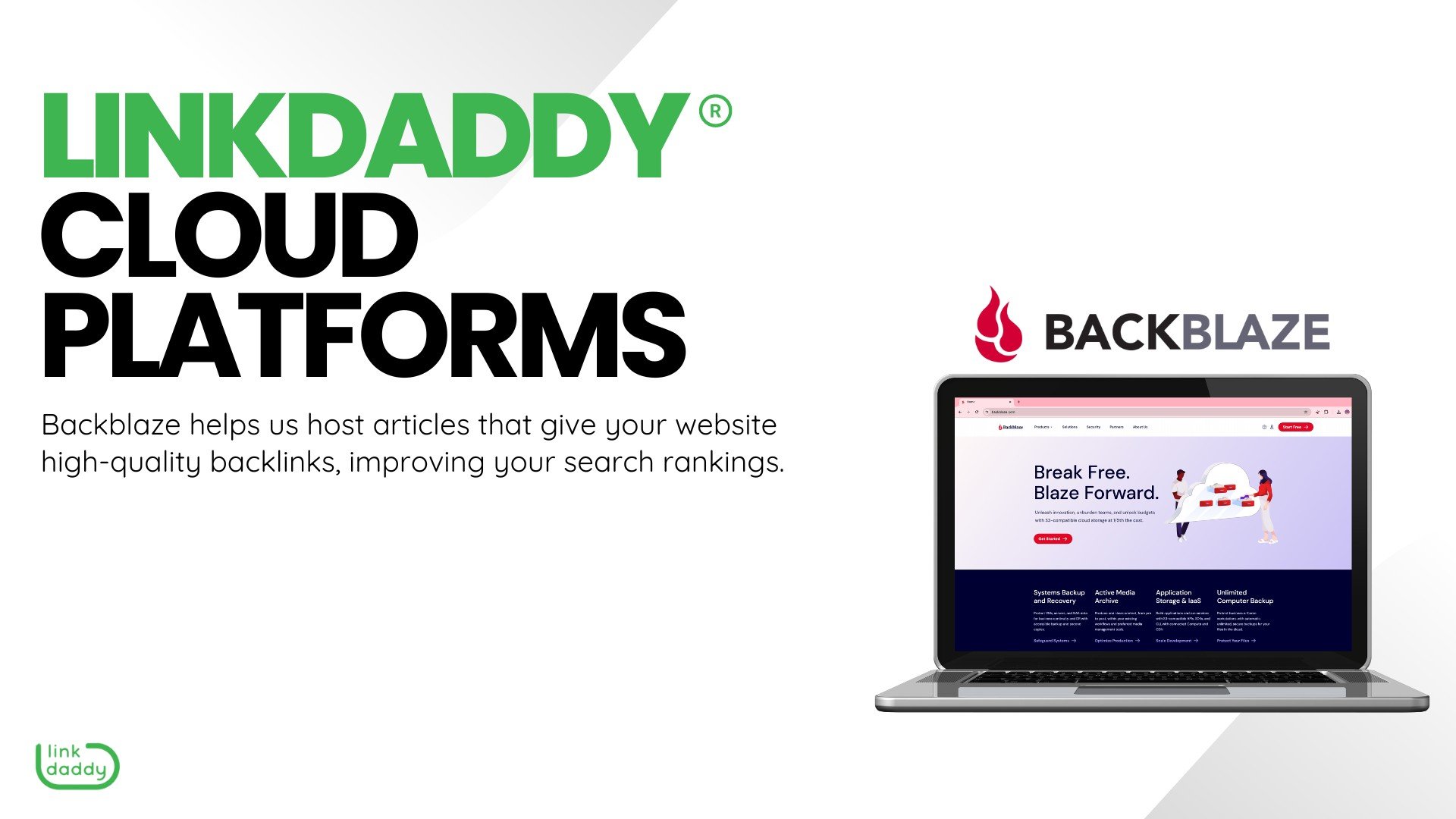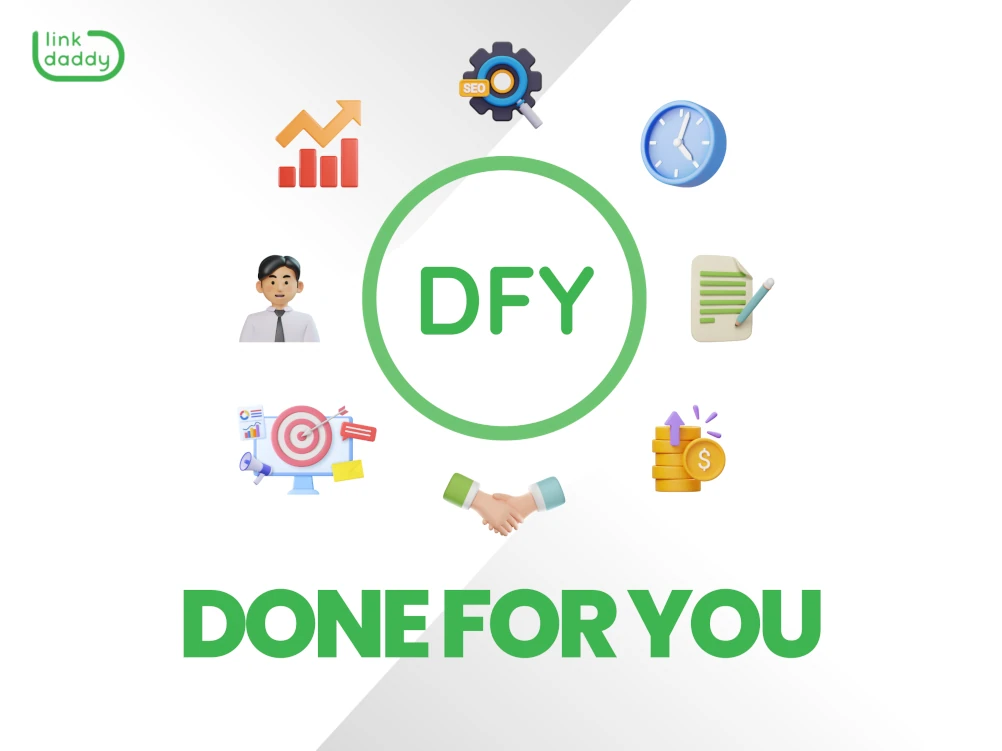LinkDaddy Cloud Services Press Release: Breaking News and Updates
LinkDaddy Cloud Services Press Release: Breaking News and Updates
Blog Article
Recognizing the Various Sorts Of Cloud Services and Their Usages
In today's digital landscape, the world of cloud computing uses a diverse range of services that accommodate the requirements of people and organizations alike. From Infrastructure as a Service (IaaS) to Software Program as a Solution (SaaS), each kind of cloud service serves a distinct function and provides distinct benefits. Understanding the distinctions in between these various cloud designs is important for maximizing procedures, boosting scalability, and ensuring cost-efficiency in a significantly interconnected globe. By checking out the nuanced functionalities and applications of each cloud solution, one can browse the intricacies of cloud computing with precision and foresight.
Framework as a Service (IaaS)
Framework as a Solution (IaaS) provides customers with virtualized computer sources online on a pay-as-you-go basis. This cloud computer design provides vital IT facilities such as online makers, storage space, and networking without the demand for organizations to buy and handle physical servers and data facilities. With IaaS, individuals can scale resources up or down based upon their requirements, supplying versatility and cost-efficiency.
Among the vital advantages of IaaS is its capacity to swiftly stipulation and release facilities parts, allowing businesses to react quickly to altering demands and market conditions. By contracting out framework monitoring to the provider, companies can focus more on their core organization activities instead of handling the intricacies of equipment upkeep and upgrades.
Additionally, IaaS uses a high degree of integrity and protection, with companies generally providing durable information backup, disaster recuperation, and cybersecurity steps. This assists make sure that essential business procedures remain undisturbed and information remains secured versus potential dangers. Cloud Services. Generally, Facilities as a Service streamlines IT procedures, boosts scalability, and lowers capital investment for businesses of all dimensions
Platform as a Solution (PaaS)
Structure upon the foundation of Infrastructure as a Solution (IaaS), Platform as a Service (PaaS) provides a thorough setting for developers to produce, release, and handle applications without the complexities of underlying facilities administration. PaaS provides a system with devices and solutions that simplify the advancement procedure, enabling designers to concentrate on composing code and building applications instead than dealing with framework worries.

Software Program as a Service (SaaS)
Software Application as a Solution (SaaS) transforms the way businesses access and utilize software applications by offering them on a membership basis with cloud providers. This cloud computing model removes the demand for organizations to maintain and mount software application on private devices, as every little thing is held and taken care of centrally in the cloud.
SaaS provides a cost-efficient remedy for companies as they just pay for the software application they utilize without the added expenses of equipment maintenance or software application updates. It likewise provides scalability, enabling companies to easily readjust their software application needs based on their you could try these out needs.
In addition, SaaS applications can be accessed from any type of tool with an internet link, advertising partnership and flexibility among remote groups. Safety is a top priority in SaaS, with providers applying robust measures to safeguard information stored in the cloud.
Popular instances of SaaS consist of consumer partnership management (CRM) software application like Salesforce, productivity devices like Microsoft Office 365, and collaboration platforms like Google Workspace. SaaS remains to get traction in business world as a result of its benefit, scalability, and cost-efficiency.
Feature as a Solution (FaaS)
With the evolution of cloud services like Software application as a Solution (SaaS) streamlining software shipment, Function as a Solution (FaaS) stands for a paradigm change in how code is implemented in a serverless setting. FaaS allows designers to create and execute specific features or items of code in response to particular events without the need to manage the framework. This serverless computing design allows designers to focus entirely on composing code to implement details performances, without worrying themselves with the underlying facilities or web server administration.
Among the key advantages of FaaS is its ability to scale automatically based on the inbound work. Features are implemented in stateless containers that are rotated backwards and forwards as required, ensuring ideal resource utilization and cost-effectiveness. FaaS is particularly valuable for event-driven and microservices styles, where code implementation is set off by occasions such as HTTP requests or data source updates. By abstracting the infrastructure layer, FaaS streamlines development, accelerates time to market, and improves overall agility in releasing cloud-native applications.
Storage as a Service (STaaS)
A basic part in cloud computer, Storage as a Service (STaaS) offers customers with a scalable and effective option for taking care of information storage space needs. STaaS permits organizations to keep and fetch data useful site from remote web servers using the net, removing the need for on-premises hardware. This service provides adaptability by enabling users to pay just for the storage they use, making it an economical remedy for services of all sizes.

STaaS is particularly useful for services with varying storage needs, as it provides a dependable and protected storage service without the need for significant ahead of time financial investments. By leveraging STaaS, companies can enhance their information administration processes, improve availability, and boost data protection in an inexpensive way.

Conclusion
In final thought, understanding the different kinds of cloud services and their usages is important for individuals and businesses looking to take advantage of the benefits of cloud computing. By utilizing the appropriate cloud service, organizations can boost their effectiveness, scalability, and adaptability in managing their IT framework and applications.
From Framework as a Service (IaaS) to Software Program as a Solution (SaaS), each kind of cloud solution offers a distinct objective and provides distinct advantages. cloud services press release. By checking out the nuanced capabilities and applications of each cloud service, one can navigate the complexities of cloud computer with accuracy and foresight
With the development of cloud solutions like Software application as a Service (SaaS) streamlining software application delivery, Function as a Service (FaaS) stands for a standard shift in how code is executed in a serverless atmosphere.In conclusion, comprehending the different kinds of cloud services and their uses is necessary for people and companies looking to utilize the benefits of cloud computing. By utilizing the right cloud solution, companies can boost their effectiveness, scalability, and versatility in managing their IT facilities and applications.
Report this page